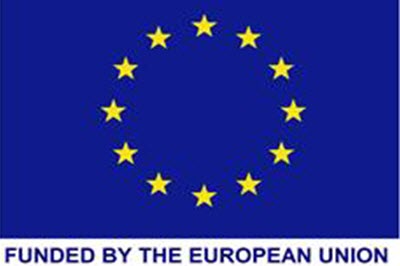
The main goal of the Project was improving the framework for Reporting Resolution of Gender-Based Violence in Tajikistan with aim in strengthening the Human Rights and Gender equality over the country. The Project included 15 target districts: Isfara, Konibodom, Rudaki, Kulob, Farkhor, Vose, Vahdat, Khuroson, Vakhsh, Panj, Nosiri Khusrav, Khujand, Bobojon Ghafurov, Panjakent, Zafarobod.
Impact of the project
1. Marked and measurable change in attitudes to GBV at the local level
During the reporting period, EFCA-Tajikistan contracted a local research organisation, Tahlil va Mashvarat LLC to conduct a baseline survey on attitudes to GBV at the local level. According to the results of the survey, the majority of survey respondents recognised physical and psychological violence in the form of beatings (75%) and humiliation (73%) as constituent forms of the definition of violence in the home. However, less than one third of respondents referred to economic violence (leaving someone without food [30%] or shelter [26%]) and sexual violence (30%). At the same time, respondents were asked where a victim should refer to in the case of violence in the family, the majority selected parents (60%), followed by the head of the mahalla (33%) and then local police (28%).
Among the key informants, those working at institutions, such as deputy district chairpersons, representative of the Committee of Women and Family Affairs and police officers, could identify the different types of violence mentioned in the law. However, other key informants, such as local leaders, imams, jamoat workers, and representatives of the Committee of Religion, had rather a general understanding of violence in the family, referring to physical and psychological forms of violence only. None of the respondents referred to sexual violence as a form of violence in the home.
2. Satisfaction of Target Groups at progress made
Letters from the MIA and other stakeholders. There has been no negative feedback from target groups, stakeholders or beneficiaries during the project so far.
3. Motions for legislative improvement at the parliamentary level
There have been no legislative improvements at the parliamentary level as a result of project activities. However, the local majlis in six target areas (Kulob, Farkhor, Konibodom, Isfara, Vose, and Rudaki) have officially approved the handbook “Cooperation with entities on prevention and response to GBV cases”, written for the project. These parliaments will use this booklet and the response mechanisms approved by EFCA-Tajikistan in future official activities, which they organise to combat gender-based violence.
4. Wide reaching impact from the information campaign
The information campaign has involved four television programs and 16 radio programs broadcast in Sughd in 2017. In 2018, four national television program were broadcast on TV-Tajikistan, another television program was broadcast in Khatlon, and forty-four radio programs went out on Sadoi Dushanbe radio station. In 2019, four national television programs were broadcast on TV-Tajikistan and additional radio programs went out on Sadoi Dushanbe radio station.
5. Wide ranging, unified GBV data sharing.
Data collected from the project, including the baseline survey is being shared with the Agency for Statistics. The GBV resource centre was established in Year 2 of the project.
1. Conducted series of trainings in 3 directions:
- with community (community leaders, activists of districts and cities);
- with police officers, local police officers and police officers who are directly working with the cases of GBV;
- with government authorities (stakeholders) who work directly with people who have been subjected to violence.
2. Conducted a baseline study by the Z-Analytics Group as part of the project "Improving the reporting system and addressing gender-based violence (GBV) in Tajikistan".
3. In cooperation with the Academy of the Ministry of Internal Affairs of the Republic of Tajikistan conducted trainings for women cadets with the help of Estonian Institute of Human Rights.
4. Information campaign (radio, TV broadcasting, publications at magazines)
5. Development and adoption of "INSTRUCTION FOR THE LOCAL GOVERNMENT BODY ON THE INTERACTION OF THE SUBJECTS FOR PREVENTION AND RESPONSE TO FAMILY VIOLENCE"
More details on instruction (taj) ...
6. In cooperation with the Committee on Women and Family Affairs under the Government of the Republic of Tajikistan establishment of the Resource Center (hotline 1313) for the victims of the violence.
For more details click here. More details ...
